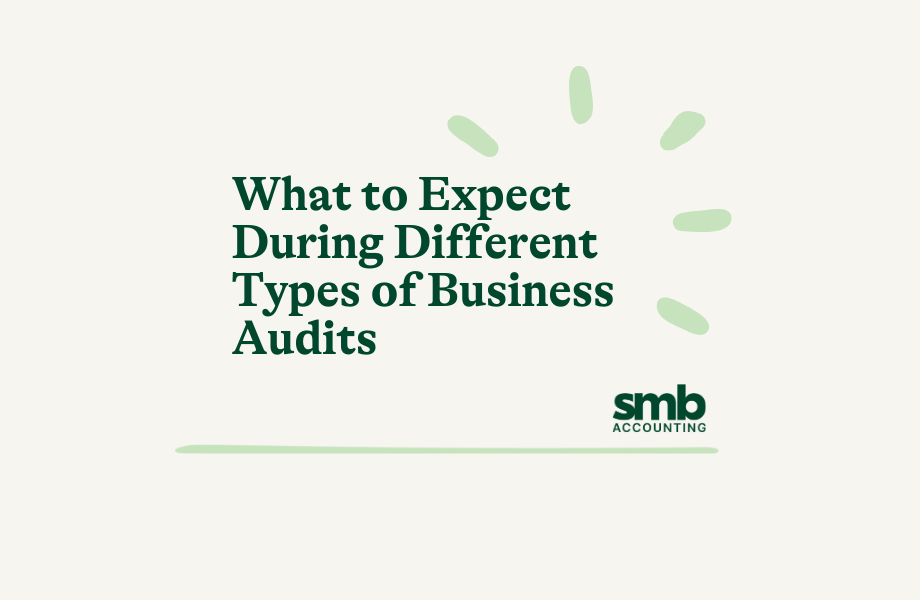Business auditing plays a crucial role in maintaining transparency and accountability. If you’re a business owner, knowing what to expect during an audit can help you stay prepared and confident. Rather than viewing audits as a burden, they can be seen as opportunities to ensure your business runs smoothly. Think of it as a regular check-up for your business’s financial health, ensuring everything is in order and compliant.
Understanding the audit process becomes easier when you comprehend the different types of audits your business might undergo. From financial statement audits to compliance audits, each serves its purpose in helping you manage various aspects of your company. Let’s take a closer look at what these audits entail and how you can prepare for them.
Financial Statement Audits
A financial statement audit involves a thorough examination of your company’s financial reports. The purpose of this audit is to verify that your financial statements present a true and fair view of your business. These audits ensure that your records comply with accounting standards, making them crucial for gaining stakeholders’ trust.
During a financial statement audit, here’s what typically happens:
– Engagement Letter: The process begins with an agreement that outlines the scope and terms of the audit.
– Planning: The auditors will plan their approach based on the business’s size, complexity, and industry.
– Fieldwork: This involves examining records, interviewing staff, and verifying balances and transactions.
– Evaluation: Auditors assess the data collected to form an opinion on the financial statements.
– Reporting: Finally, they provide a detailed report with their findings and, ideally, an unqualified opinion, indicating that the statements are accurate.
Understanding these steps helps demystify the process, allowing business owners to be actively involved and informed. Preparation can make the audit smoother, ensuring there are no surprises along the way. By keeping detailed financial records and being transparent with your information, you make the auditors’ job easier, which can result in a more straightforward audit experience.
Compliance Audits
Compliance audits focus on ensuring your business follows laws, regulations, and internal policies. These audits are essential to prevent legal issues and maintain your reputation. For example, if your company operates in a highly regulated industry like healthcare or finance, compliance audits ensure everything adheres to legal frameworks.
Here’s how you might get ready for a compliance audit:
– Review Regulations: Familiarise yourself with the relevant laws affecting your industry.
– Policy Check: Ensure internal company policies align with external regulations.
– Gather Documentation: Organise contracts, communications, and other records that demonstrate compliance.
– Self-Audit: Conducting a mini internal audit can help you identify potential issues before the official audit.
– Employee Training: Make sure staff understands the regulations and how they apply to daily operations.
Taking these steps helps prepare you for the audit and embeds a culture of compliance within your business. It’s about smoothing out processes and ensuring everyone in the team understands their role in maintaining compliance.
As you move forward, having clear processes and up-to-date documentation will make compliance audits a routine part of your business operations, rather than a stressful event. This proactive approach benefits your company by keeping everything above board and building trust with clients and regulatory bodies alike.
Operational Audits
Operational audits examine the effectiveness and efficiency of your business processes. They ensure that everything runs smoothly and cost-effectively. The main objective is to identify areas where your company can improve to maximise productivity and efficiency. By doing so, you ensure that your operations align with the strategic goals of your business.
Here’s what an operational audit typically involves:
– Planning: Auditors begin by understanding your company’s operational goals and identifying key areas that require examination.
– Fieldwork: This includes observing different operations, conducting interviews with staff, and evaluating processes.
– Analysis: Auditors assess operational data and compare it with industry best practices.
– Findings: Based on their analysis, auditors highlight inefficiencies and recommend practical solutions for improvement.
– Reporting: A detailed report is provided, outlining observations and actionable advice.
This type of audit not only helps streamline business processes but also plays a significant role in reducing waste and optimising resource use. For instance, if your business is in the manufacturing sector, operational audits might reveal where raw materials can be used more efficiently, potentially saving costs and increasing output.
Internal Audits
Internal audits serve as an in-house check that can improve risk management and control procedures. These audits help identify any potential issues before they escalate, offering a proactive approach to safeguarding the company’s assets and reputation. Regular internal audits can foster a culture of continuous improvement and accountability within the company.
The process of an internal audit generally includes:
– Objective Setting: Deciding which areas or processes to focus on, often those with the highest risk.
– Examination: Evaluating and testing current control processes to ensure they meet the expected standards.
– Risk Assessment: Identifying potential risks and weaknesses in the company’s operations.
– Recommendations: Suggesting improvements or adjustments to current practices.
– Monitoring: Establishing ongoing audits to ensure controls remain effective over time.
Internal audits empower businesses to make informed decisions, address deficiencies promptly, and enhance operational effectiveness. Organisations that conduct regular internal audits can stay ahead of potential issues and create a structured approach to improving business operations.
Preparing for Different Types of Business Audits
Understanding various audits and their processes helps businesses meet compliance and operational standards while improving overall performance. Audits, when approached with an open mind, can be a powerful tool for growth and efficiency. A well-prepared organisation is more likely to turn audits from a challenging task into an opportunity for positive transformation. Keeping your records organised, staying informed about regulations, and being open to recommendations will allow you to leverage audits as a strategic advantage. Audits are part of the life of a thriving business, paving the way for progress and sustainability.
Ready to take your business to the next level with improved clarity and confidence? SMB Accounting is here to support you every step of the way. Whether you’re navigating financial reviews, regulatory checks, or operational evaluations, our team is committed to making the process seamless and stress-free. Learn more about how we can assist you with business auditing tailored to your needs. For any questions or to schedule your audit, reach out to us through our contact page.




